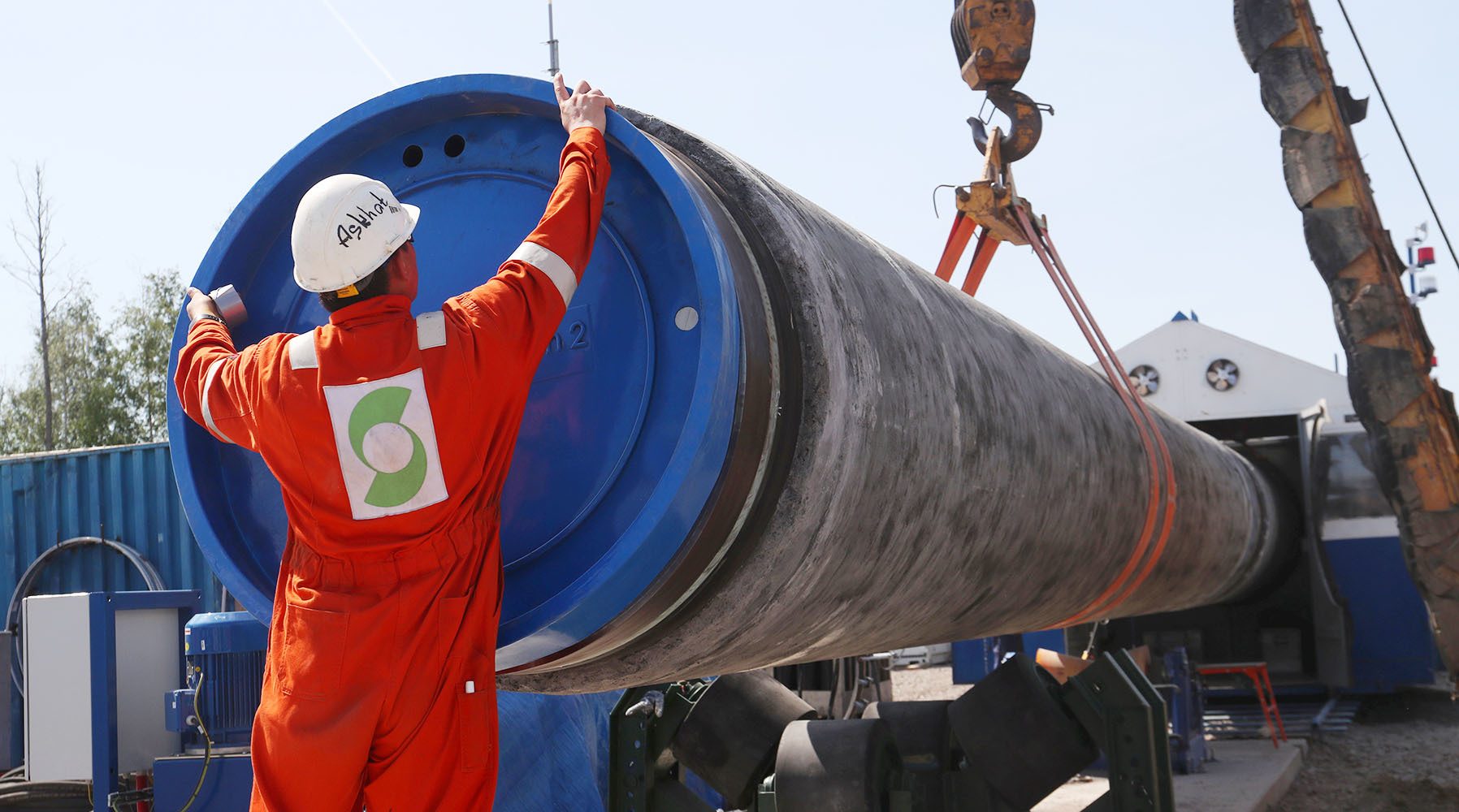Russia has found a way to circumvent US sanctions in the construction of the Nord Stream 2 gas pipeline, Die Welt writes. The German publication states that the United States had almost no opportunity to influence the construction of the gas pipeline.
The Die Welt material refers to the Russian ship-laying vessel Akademik Chersky, which is capable of completing the construction of Nord Stream 2. Earlier, the media reported on the upcoming expansion of the sanctions package on the gas pipeline in the United States, directed, inter alia, against Academician Chersky.
However, according to Die Welt, Moscow has found a way around these restrictions. Journalists pointed out that "Russia is almost there."
Previously, the Akademik Chersky vessel belonged to Gazprom, which means that the Russian company could be subject to penalties, but now the vessel is registered with the STIF fund operating in Russia. Thus, Gazprom gets the opportunity to complete the gas pipeline to the end, without fear of American sanctions, writes the German publication.
“However, he (obviously Trump. - RT ) is unlikely to be able to stop Nord Stream 2.” Russia is already close to the target, 2,300 of 2,460 km of the pipeline are completed. "Academician Chersky", therefore, must lay another 160 km. And the ship may soon go to sea, despite the planned new sanctions. Because Russia, obviously, has found how to get around them, ”the journalists say.
“If this is true, Gazprom can complete the pipeline without fear of sanctions,” the article says.
Note that we are talking about the Samara Thermal Energy Property Fund (STIF).
Recall that Nord Stream 2 is two strands of a gas pipeline with a total capacity of 55 billion cubic meters per year and a total length of more than 1,200 km that pass through exclusive economic zones and territorial waters of five countries - Russia, Denmark, Finland, Sweden and Germany.
- Reuters
- © Anton Vaganov
US Intervention
The American side has repeatedly opposed the construction of the pipeline, pointing to the "threat to the energy independence of Ukraine and Europe." At the end of 2019, the head of the White House, Donald Trump, approved the country's defense budget for the upcoming fiscal year. As part of this document, sanctions were envisaged, including against the Nord Stream 2 pipeline.
One of the consequences of this decision was the refusal of the Swiss company Allseas, which conducted the laying of the gas pipeline, to continue this work. The company said it did not plan to return to the construction of Nord Stream 2.
At the end of May 2020, US Ambassador to Germany Richard Grenell spoke about Washington’s intentions to impose new sanctions against Nord Stream 2. In mid-June, German Foreign Minister Heiko Maas said that US-imposed restrictions do not affect Germany’s position on the gas pipeline.
“Just thinking about sanctions or perhaps initiating new ones does not change anything in our position on Nord Stream 2,” said the head of the German Foreign Ministry. Maas stressed that the sanctions discussed are extraterritorial in nature.
“We reject them,” the minister concluded.
In addition, the head of the German Bundestag committee on energy, Klaus Ernst, proposed introducing sanctions against senators who advocate restrictions on Nord Stream 2.
In turn, the head of the Ministry of Energy of Russia Alexander Novak said that the sanctions being discussed in the USA against Nord Stream 2 do not contribute to joint work to restore the economy.
“Regarding Nord Stream 2 and a number of other issues that have been preserved, in my opinion, and they, of course, do not leave a positive imprint on the development of the situation. Unfortunately, protectionist measures remained even during the crisis, ”Novak said.
According to him, this “does not play quite positively in order to jointly take efforts to restore the global economy” and develop market instruments.
According to Vladimir Olenchenko, a senior fellow at the Center for European Studies at IMEMO RAS, Die Welt material reflects the sentiments prevalent among German politicians.
“In the German elite, it is deeply irritating that the United States impose its opinion, speak the language of imperative, the language of dictatorship, in addition, this is a frank desire to force Germany to serve as a market for the United States. Here we need to look broader, we are talking not only about gas, gas is the most key moment. The US is also putting pressure on many other products, ”the expert said in an interview with RT.
As Olenchenko pointed out, the obstacles created by the United States serve one purpose - ensuring the political and commercial interests of Washington. In this regard, the expert noted that Berlin did not ask Washington for advice.
“Germany did not appeal to the United States with a request to defend interests in relations with Russia, to conduct some kind of expert examination or to make any recommendations. Apparently, the United States will not rest on this, but must conclude that Germany will steadily act in the direction of the implementation of Nord Stream-2, ”the expert concluded.
Igor Yushkov, expert at the Financial University under the Government of Russia and leading analyst at the National Energy Security Fund, agrees with the assessment of the consequences of US intervention for the German economy.
“The Germans and the entire European business understand what threatens them, and threatens them that they will have more expensive gas if everything is carried out according to the US plan, respectively, you get more expensive electricity, heating from more expensive gas, and all this laid in the cost of final goods. And it turns out that the matter is not only in gas, ”the expert stated.

